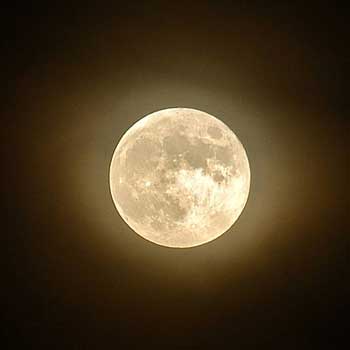
What gives the Moon its glow? - ARCHIVED

Discuss: What did you notice when you did your Moon Journal? Was there anything you saw that helps you know where the Moon’s light is coming from?
Reveal answer
Watch the next video, where we’ll consider the different shapes (phases) of the Moon.

Discuss: When the Crescent Moon is setting, where is the Sun?
Reveal answer
The Sun is beneath the ground just a little below the horizon. If you make your arms into a V-shape, with one arm pointing at the Moon, the other side would point to where the Sun is. Go to the next slide to see an illustration.
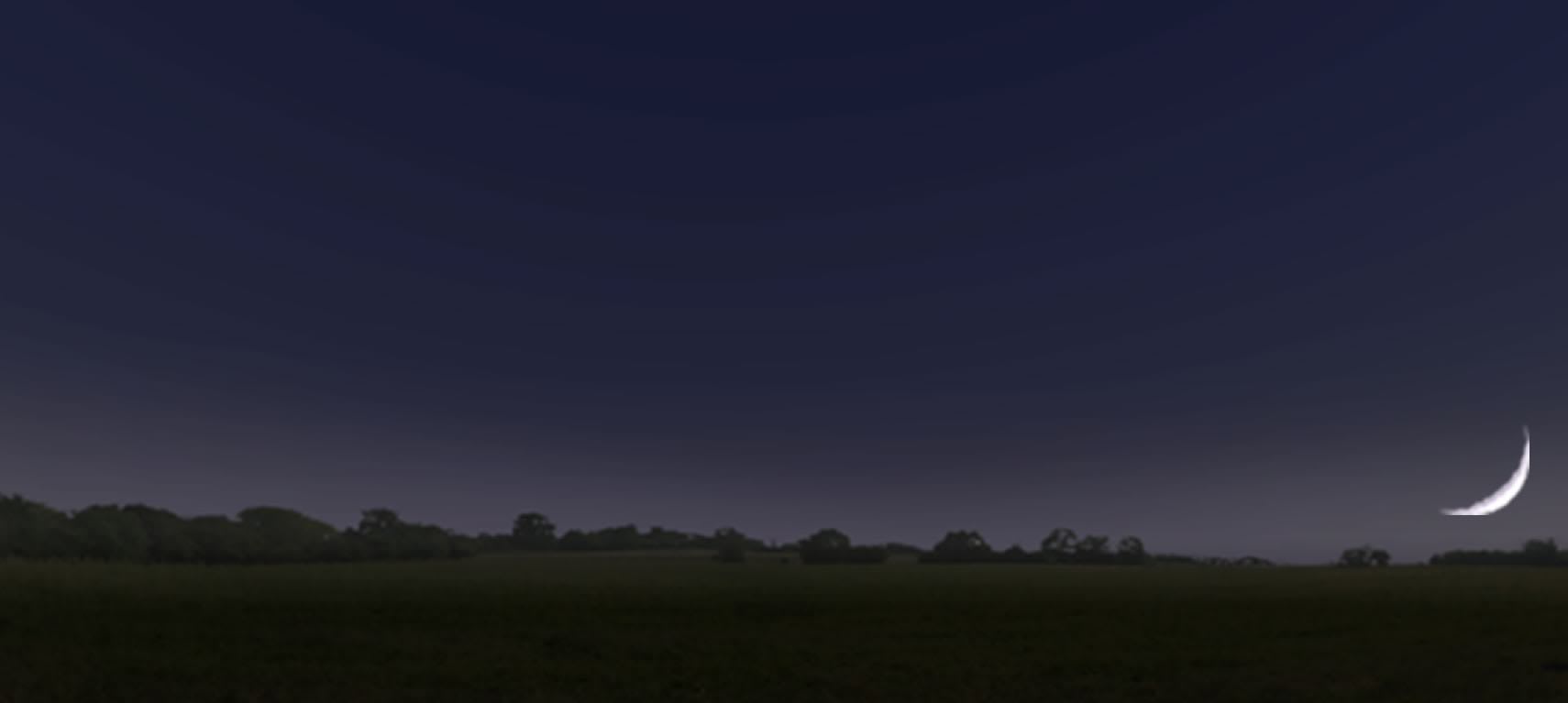
Hint: The Sun is at a V-shaped angle with the Crescent Moon.
The Sun is just below the horizon. It always makes a V-shaped angle with the Crescent Moon.
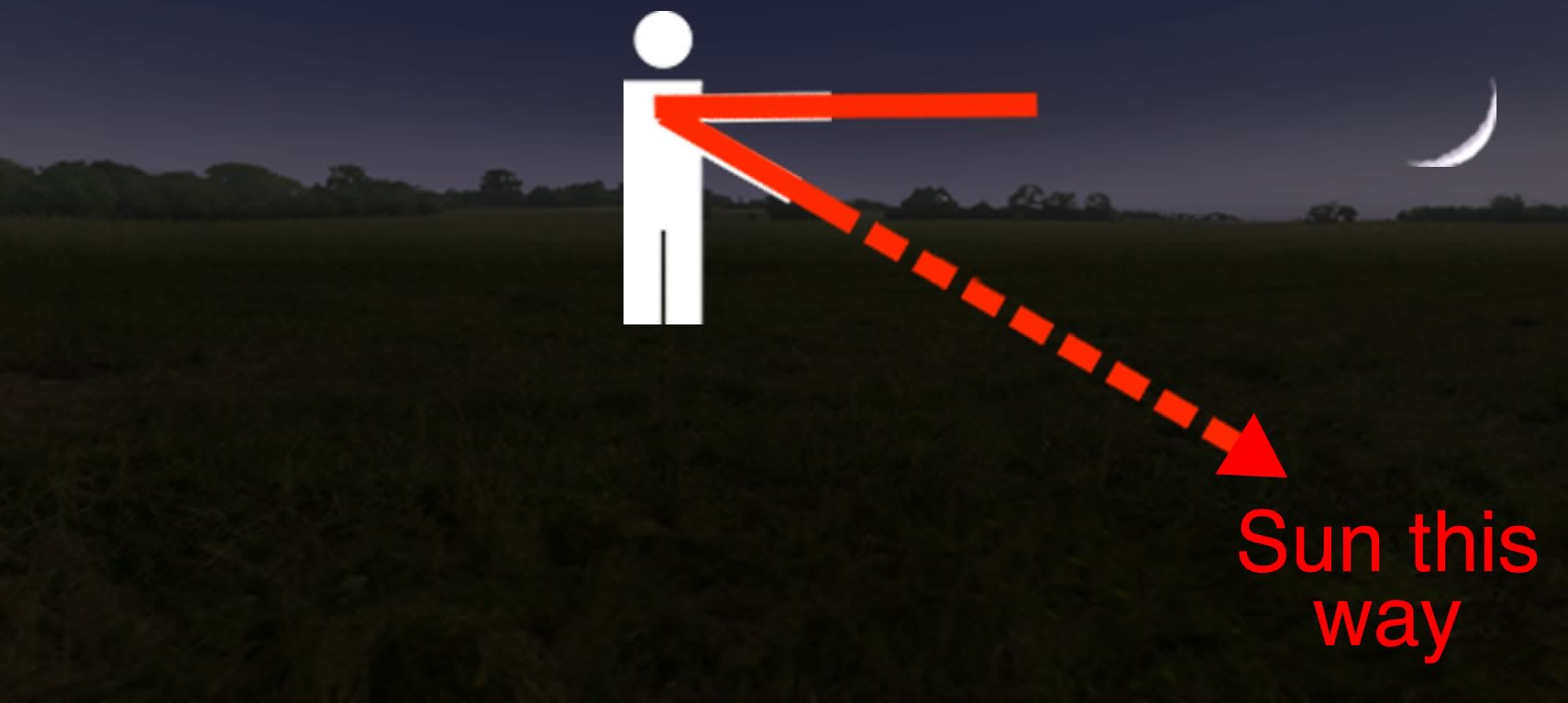
Discuss: When the Half Moon is setting, where is the Sun?
Reveal answer
The Sun is directly beneath your feet on the opposite side of the Earth. If you make an L-shape with your arms, with one arm pointing at the Moon, the other arm would point to where the Sun is. Click to the next slide to see an illustration.
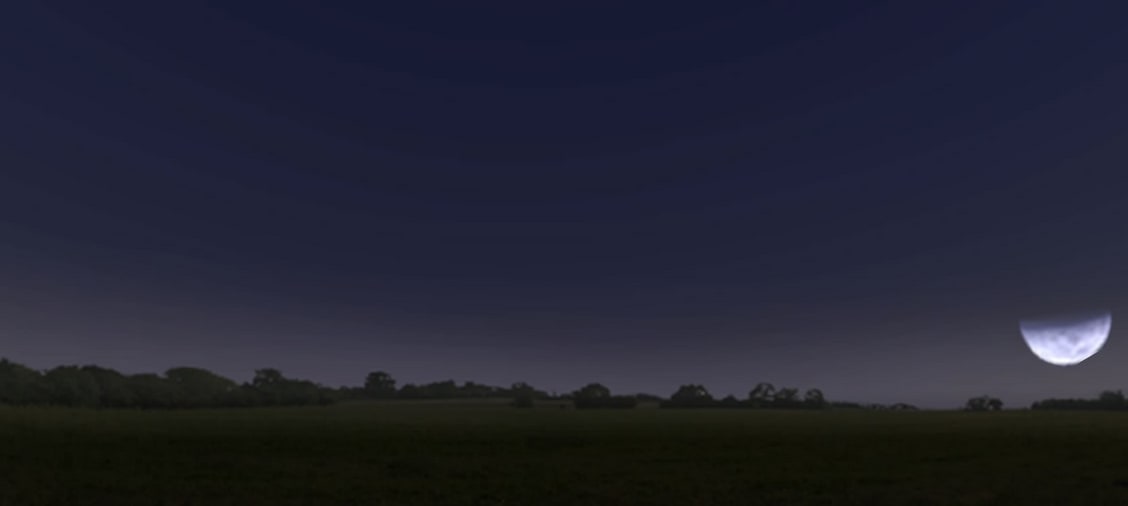
Hint: The Sun is at an L-shaped angle with the Half Moon.
The Sun is directly beneath your feet on the opposite side of the Earth. It always makes an "L" shape with the Half Moon.
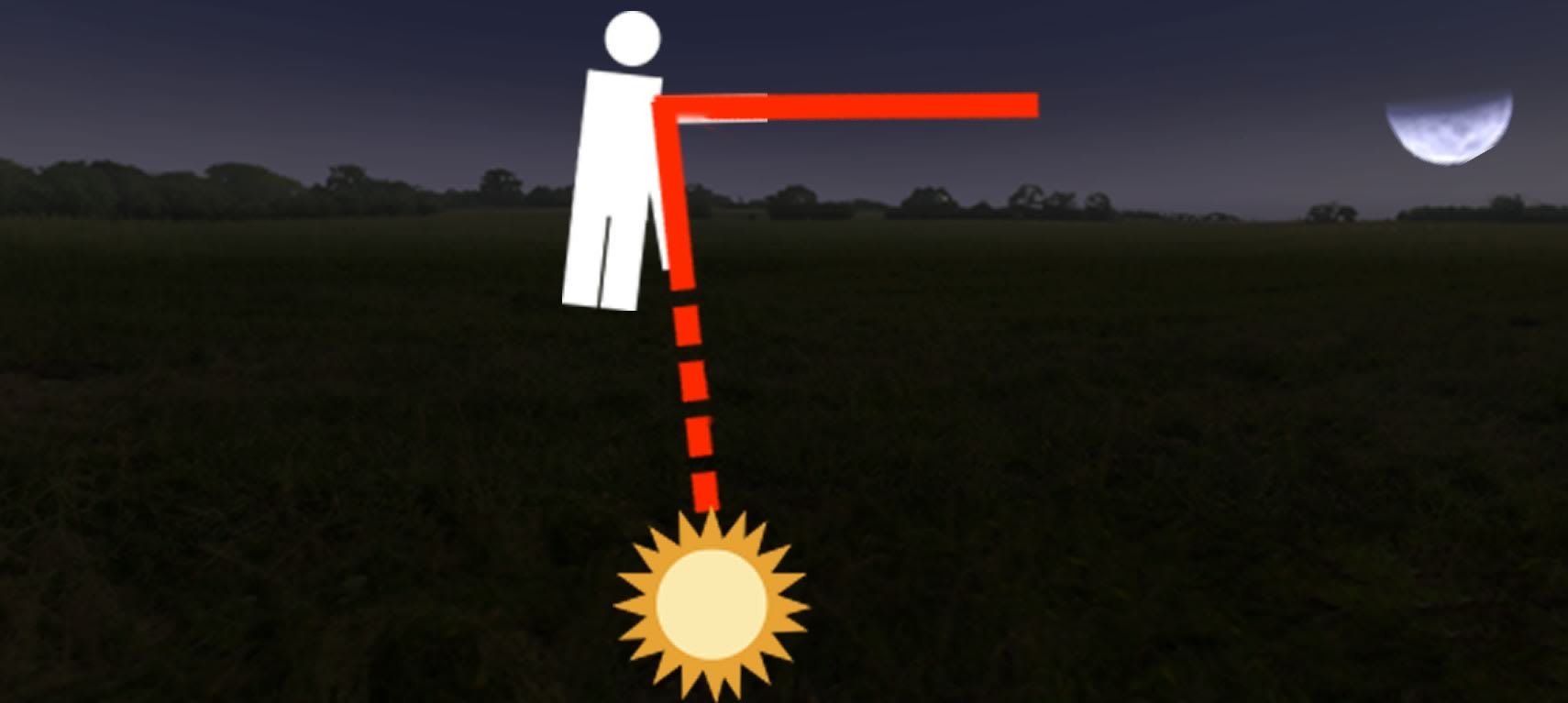
Challenge: About what time is it in this picture?
Reveal answer
It's close to midnight! (Think about it: the Sun is almost halfway between sunrise and sunset.
Discuss: When the Full Moon is setting, where is the Sun?
Reveal answer
The Sun is just starting to rise in the east. The Full Moon and the Sun make a straight line with each other. Click to the next slide to see an illustration.
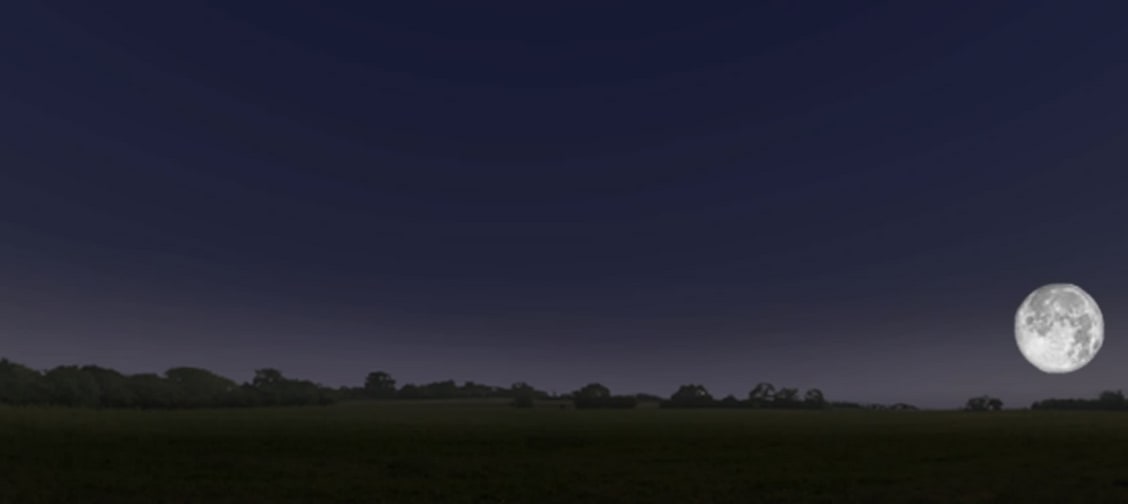
The Sun is just starting to rise. The Full Moon and the Sun make a straight line.
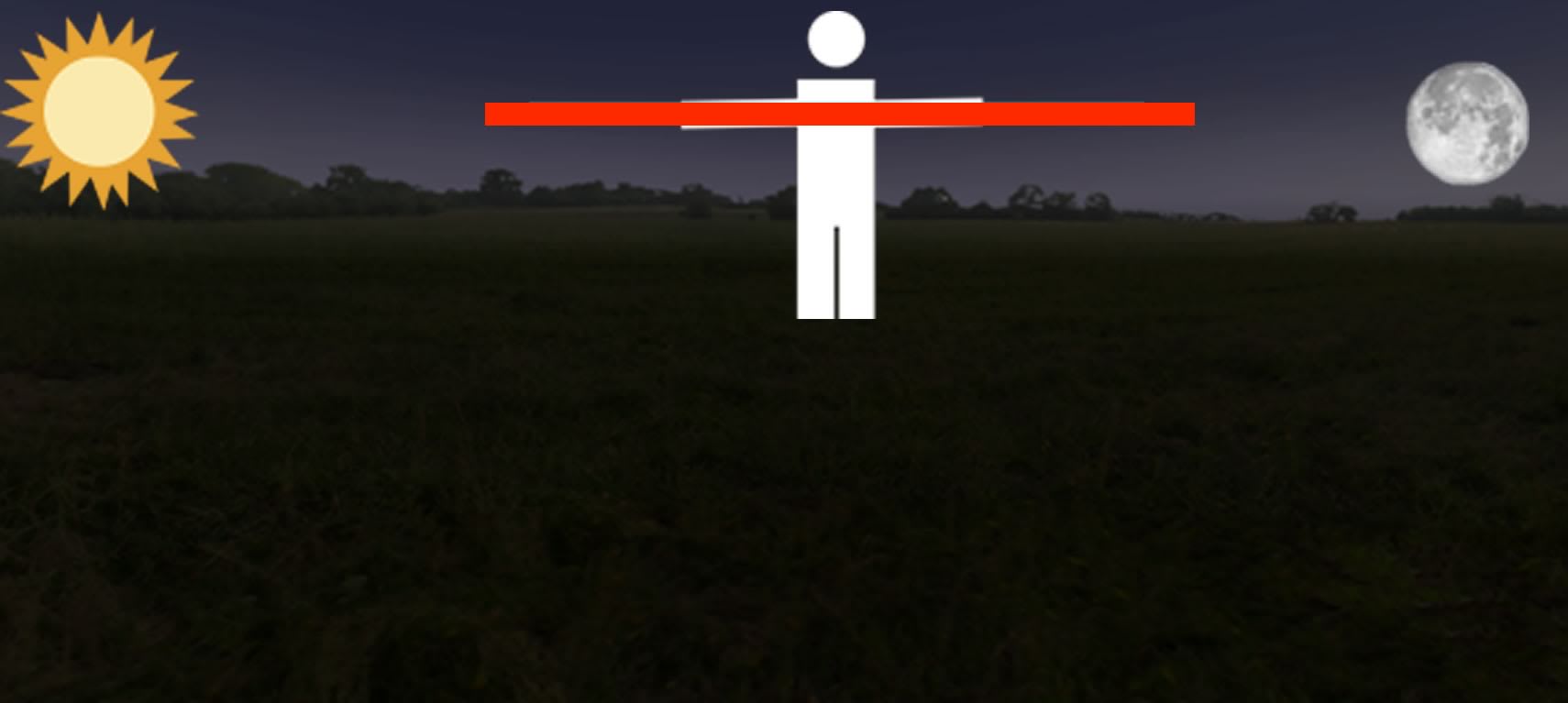
Challenge: What time of day is it right now?
Reveal answer
It's sunrise.



Discuss: Now that you've learned what causes the Moon's phases, how would you explain it to someone who doesn't know?
Reveal answer
The Moon is making different angles with the Sun. The phase that we see depends on what the Moon's angle is with the Sun. The reason the angle changes is because the Moon is going in an orbit around the Earth.
Extend this lesson
Below are ideas for extending this topic beyond the activity & Exploration which you just completed.
- Written Response Questions and Answer Key
- Reading: The Many Names for the Full Moon
- Activity Extension: The Moon's Face
- Discussion: Why We See Moon Phases (deeper level)
Extra Activity: The Moon's Face
Encourage creative storytelling by asking your students to look for pictures on the Moon's face using this activity from the Lunar and Planetary Institute. For photos showing what various cultures have seen on the moon, check out this National Geographic article
Discussion: Why We See Moon Phases (deeper level)
If you think your students are ready to delve into the cause of Moon phases more thoroughly, you can show them the “Moon Phases” animation at Dr. Cecilia Barnbaum’s Astronomy Demo Site. (You'll have to hit the play button to start the animation.) The animation has no narration, but you can pause to talk with your class about what it's showing. At the same site, you can also check out the “Why We See Phases” animation, which shows the phases of a tree and a ball in the sunlight.


